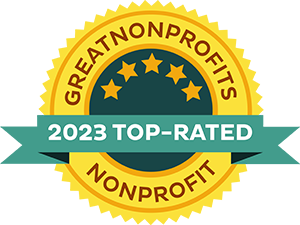FOR IMMEDIATE RELEASE
Friday, August 30, 2019
Contact:
Keith Brown, keith@katalcenter.org | (518) 527-6263
Capital Region Community Takes to the Capitol to Observe International Overdose Awareness Day
Despite another year of unanswered promises and demands for actions from Governor Cuomo and State Legislators that match the scope of the crisis, the impacts of drug related deaths and criminalization continue to be felt by communities across the Capital Region.
Albany, NY: Capital Region advocates and families impacted by criminalization and the overdose crisis took to the New York State Capitol today with a rally to observe International Overdose Awareness Day (IOAD) by remembering those lost to overdose, and demand action to prevent future harm and deaths. Advocates are demanding investments in harm reduction and other life-saving resources, dramatic shifts away from criminalization, and the establishment of medication-assisted treatment (MAT) in all settings including in New York State jails and prisons, as well as other imperative lifesaving actions. Building on actions this week in New York City and elsewhere, the event featured the pop-up Safe Shape exhibit, as advocates demand the opening of Opioid Prevention Centers in New York as promised by Governor Cuomo.
Nationally, overdose is the leading cause of death for people under 50, and the crisis is taking more lives a year than car crashes or gun deaths. In New York State, overdose now takes more lives than suicides, homicides, and traffic accidents combined. From 2013 to 2015, 7,213 New Yorkers died of overdose.
International Overdose Awareness Day, held every year on August 31st, is used to raise awareness, reduce the stigma of drug-related deaths, remember those who have died or suffered permanent injury because of drug overdose, and stimulate discussion about overdose prevention and drug policy. The day featured rallies, memorial services, and candlelight vigils, as well as education and training campaigns in towns and cities across the world. The rally was part of a series of actions held this week by groups in the state-wide #EndOverdoseNY Coalition.
“It is unconscionable given the amount of suffering, death, and harm experienced by our communities and the toll of the crisis we’re facing that we’re at the Capitol another year demanding that the governmental response matches it in scope. So we’re here again, joining each other in grief, anger, and solidarity to demand ‘not one more’ preventable death to our elected officials,” said Keith Brown of the Katal Center for Health, Equity, and Justice, one of the event’s organizers.
Lauren Manning of the Center for Law and Justice encouraged people in the community to think differently about the disparate impact felt by communities of color and to demand different approaches. “Despite the ongoing narrative that the overdose crisis is an issue mainly for white Americans, we know that death rates have been rising faster for blacks than whites. Further, it is well known that people of color are less likely to receive effective evidence-based treatment for substance use disorder and are far more likely to be arrested and incarcerated for drug-related offenses. This is why we at the Center for Law and Justice demand an end to criminalization altogether and a radical shift toward health.”
While the impacts of failed criminalization approaches on drug-related deaths are routinely highlighted in the media, that doesn’t come close to painting the entire picture of drug war harms. Arrest, jail, and incarceration for drug-related crimes, disproportionately impacting poorer people and communities of color, have far reaching effects.
Tara, a leader with the Katal Center for Health, Equity, and Justice, said: “Criminalization doesn’t actually keep us safe. We know what it does, not only to black and brown communities, but to society as a whole, and we must come together as one to address these issues.”
“Criminalization has not and will not work in the face of a public health crisis. Policy change is our primary avenue to curbing and ending the overdose crisis. We don’t need any more empty promises. We need Governor Cuomo to step up and take action. We need solutions like overdose prevention clinics, universal access to MAT, and syringe decriminalization, and we need them now,” added Thomas Kearney, a leader with VOCAL-NY.
Similarly, families who have lost loved ones to overdose demand sensible responses to prevent others from experiencing grief and loss.
According to Alexis Pleus of the group Truth Pharm, “Truth Pharm is thankful to be joining our allies at the Capital to memorialize our loved ones, but we do not want our losses to be in vain. As the government continues to fail us in funding evidence-based harm reduction and to end the War on Drugs, families are forced to bury their children. This event allows us a time to come together to share our pain and to hold our government accountable in order to reduce overdose fatalities.”
Treatment and recovery groups agree. Kellie Roe, Executive Director of Second Chance Opportunities, event co-sponsor said, “Every overdose death is someone’s child. We must elevate our response to meet the current level of this crisis. Anything short of that is unacceptable.”
A main demand of advocates remains the need for significant investments in harm reduction and medication-assisted treatments like methadone and buprenorphine.
“Strategies such as naloxone training, on demand, low threshold evidence-based treatment, and harm reduction-centered outreach play a vital role in decreasing overdose death risk. Through investment in these and other innovative harm reduction interventions we can help people stay alive and healthy, ultimately improving outcomes for People Who Use Drugs,” said Stephanie Lao, Executive Director of Project Safe Point.
New this year is the exhibition at the Capitol of Safe Shape, a pop-up mock safer consumption space, also known as an overdose prevention center. End Overdose NY as well as family, treatment, advocacy, recovery and other groups have been pushing legislation in New York that would authorize the establishment of such spaces as a way to save lives and engage people who use drugs into services.
President of Families for Sensible Drug Policy, Carol Katz Beyer shared: “All we are asking is for the same consideration that exists for every other complex health condition. If we have identified relapse as expected, and the drug supply is tainted with fentanyl, why wouldn’t we provide a safe place for people to use drugs? We need to make sure people are valued. I’m standing side by side with other families impacted by this crisis to end stigma and save lives.”
Another story not often told about the impact of criminalization in the context of the overdose crisis is the collateral damage done to people with chronic pain. As a result of being force tapered or cut off from effective opioid pain management, people are turning to more unpredictable illicit markets, significantly raising the risk of overdose, and in many cases resort to suicide. This year, pain patient advocate Lelena Peacock from North Carolina, joined allies in Albany to speak on these experiences. “Pain is being criminalized across America. The policies currently being enacted in response to the overdose crisis are causing grave harm to millions of pain patients and the physicians who dare to treat them. The War on Drugs has already successfully criminalized drug use and addiction, causing harm and death in our communities. This is why people who use drugs, people in recovery, and people with chronic pain conditions must align to demand an end to opioid panic, criminalization, and stigma.”
While the focus of Capital Region Overdose Awareness Day is primarily on the failure of New York State to adequately address the crisis, action is also necessary at the federal level. Leo Beletsky, Professor of Law and Health Sciences and Faculty Director, Health in Justice Action Lab at Northeastern University said, “We know what to do, we just need to do it: harm reduction and health care services, economic opportunities, and the dismantling of antiquated, racist drug laws.”
To find out more about International Overdose Awareness Day visit: www.overdoseday.com.
###

